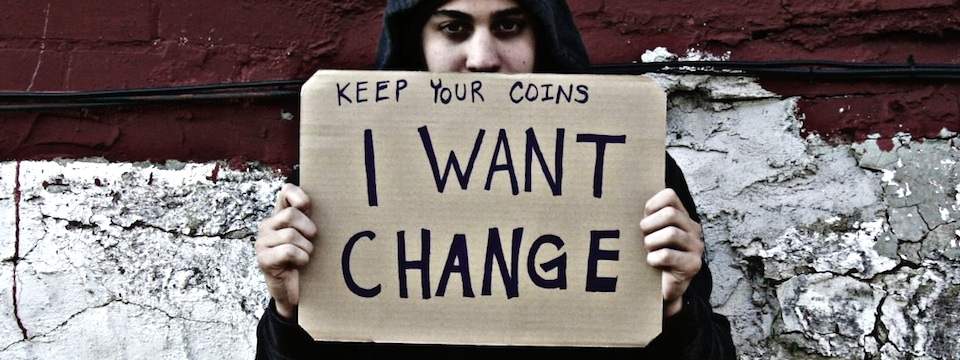I came across this interview today, and thought it had some really great things to say (don’t worry, it’s short!).
MANAGING MILLENNIALS: OPENNESS, BALANCE, SPEED
Get with it, baby boomers: A new generation craves information, speedy decisions and yes, an element of play at work, says CEO Brian FetherstonhaughKarl Moore: This is Karl Moore talking management for The Globe and Mail. Today I am speaking to Brian Fetherstonhaugh who is the CEO of OgilvyOne Worldwide, which is the new media arm of one of the largest advertisement firms in the world. So, good afternoon Brian, it’s nice to have you with us again.
Brian Fetherstonhaugh: Hello Karl, good to see you.
KM: Will it change how we manage people in their 20s and early 30s in this world they live in? How is it different to manage that generation?
BF: It’s a great question. We have done a fair bit of research on the millennial generation as employees; what are they looking for, what’s different from when you and I started in the workplace? And there are a couple of core values, three of which [include] the desire for openness: they have this insatiable appetite to be in the know and to share information in a way that I did not have when I first came into the company. So the implications for leadership are always to put it out there – what the new information is, and the reasons for that information and also to get over the fact that your employees will share their salary information with each other.
I didn’t grow up in that world but it is completely prevalent. Everybody knows when somebody gets a raise; everybody knows who got a bonus and who didn’t. So as a manager of the baby boomer generation, this is a new reality but it’s the truth about the workplace and the millennial workplace.
Another [core value] is the desire for an element of play at work. Even in a recession there is a healthy element of play and social networking. This is one of the reasons people like companies and aren’t in freelance businesses or independent contractors. So the workplace needs to be fun again. There has been a long patch of American business and Canadian business that hasn’t been that fun, it’s been more of an “all work and no play” experience and I think we need to recreate that balance. In our own company we brought back “Thirsty Thursdays” and events and parties, small inexpensive reasons for people in the company to get together, and that’s been really successful.
The final thing that the millennial generation has is an insatiable appetite for speed: speedy decisions, and speed of progression within their own careers. It comes from sort of a “Google reflex” which is if they have a question they go onto Google or their search engine of choice, and they find the answers instantly There have been tremendous short feedback loops and so as a leader in a company with millennial employees you need to understand that. You don’t always need to make a decision in two seconds flat, but you need to know that the millennial employee is expecting it and has grown up with that so at minimum set up expectations.
KM: Do you find they are less hierarchical and really want to have a voice in terms of decision making?
BF: Great point, absolutely I think that there is this extreme desire for early engagement. I often give young people in our company advice on this.
Part of the wisdom I think that baby boomer leaders can pass on is that there are consequences to that. You walk into a business situation, you are 23, 24 or 25 years old, and you want to put your hand out and contribute into big-time business decisions. A lot of millennials don’t understand the consequences of that, which is if you do that once or twice and you do it badly because you don’t have context, you are going to get killed “Big” people will ask you to not be on the team any more.
So I think there is expectation setting on both sides, this very strong desire to contribute, but I think there are ways of channelling it and making it succeed so that the millennial employee finds their voice but also, frankly, does their homework and inoculates their opinion and is really prepared to make that viewpoint because it’s not Facebook, it’s a multimillion-dollar business decision, and it’s different.
As the resident non-spokesperson for Gen Y, I will say just a few things about this.
To be honest, I almost completely agree on his 3 insights — but, naturally, I have a few thoughts:
1) OPENNESS
Openness IS key; as a generalization, we Gen Y’ers hold very few things “sacred,” and are completely baffled as to why a person wouldn’t want to talk about things like money, spirituality, or politics. (What else is there to talk about!?)
In the age of Google/Facebook/Twitter, nothing can be hidden anymore, anyway.
2) BALANCE
Play at work is good, but the paragraph in the interview is missing something pretty crucial — the fact that work isn’t, and never will be, our entire life.
This is a pretty significant shift, as most of the Boomers I know, at least, seem to live to work. We, on the other hand, look at the same issue from the other side — “How can I enjoy and derive meaning from the things that make me money? How do I design a lifestyle to where I can experience everything I want to?”
3) SPEED
Understanding our propensity for speed is very perceptive (well done, Brian). It certainly does impact nearly everything we do, most notably the way we think. We cannot even comprehend why some decisions could take so long. We see a world that is inundated with technology… shouldn’t we be using it? Shouldn’t business be moving with the pace of the world? Makes all the sense in the world (to us).
I hear some derivation of the last section a lot — the part where Gen Y’ers feel entitled to make multimillion dollar decisions within 3 months on the job, or expect some kind of instantaneous promotion after Day 7.
I think most of this is a complete misunderstanding, to tell the truth.
The Gen Y’ers I know don’t expect any of those things. But they do want desperately to be involved and to be appreciated for their talents. (After all, it’s how our beautiful Boomer parents raised us!)
For older leaders, the big hurdle to jump here is the “pay your dues” mentality that threatens to infect any reasonable adult at some point. And I do think this paradigm really does seem reasonable; it seems fair. After all, you had to pay YOUR dues, right?
The problem is that this perspective is simply not in the best interest of your business anymore.
The coming generations of leaders do not occupy the same business world you entered. Therefore, it isn’t fair to expect them to think the same way you did. And because the mentality of the emerging workforce has shifted, the rules have changed.
If we have employees that are craving engagement (which is the productive way to look at Gen Y behavior), why would we even CONSIDER risking their disengagement? If our org has passionate followers, how could we POSSIBLY think that crushing their passion would have a profitable outcome? The goal is redirection and refocusing of that passion. Not always easy, but always worth the effort.
//



0 Comments
Rick Warden
Interesting article! Do you see any differences between “gen Y” and Barna’s “mosaic generation” ?
josh Allan
Hi Rick!
We’re still pretty “close” to all of this to see how clear generational delineations are going to play out, in my opinion, but for our purposes I think it’s safe to consider Gen Y and Barna’s “Mosaics” to be essentially the same group.
Does it seem like these ideas play out as true for you, in your context??